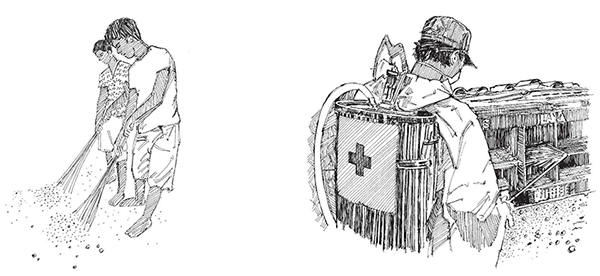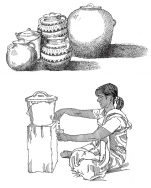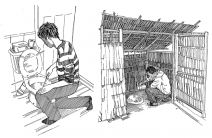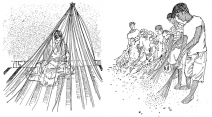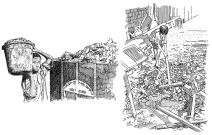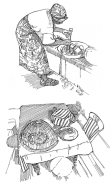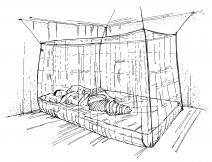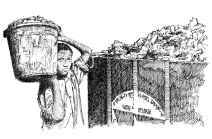36. Vector and reservoir control
36. Vector and reservoir control
Last update: 2025-06-03
Overview
- Vectors are insects or animals that spread infectious diseases through a bite, or contact with their urine, faeces, blood, etc. Many diseases are spread by vectors. Some of these diseases include malaria, dengue fever, Zika, chikungunya, yellow fever, Lassa fever, Rift Valley fever and plague.
- Vectors sometimes live and thrive on other host animals, called reservoirs, before they reach the human population. To protect people from disease, it is important to control both vectors and reservoirs. Vectors and reservoirs include animals and insects such as mosquitoes, ticks, rodents, fleas, etc.
What to do and how to do it
Vector and reservoir control in the community
- Promote hygiene, sanitation and protective practices (** the specific practices you will encourage are dependent on the type of vector or reservoir of concern **). Talk to people in the community about environmental protection strategies against mosquitoes:
- Repair and close any holes in windows, walls, roofs
- Use insecticide-treated screens on windows and doors, if available
- Drain stagnant and standing water, cover water containers
- Find professionals to spray or larvicide against vectors - spraying chemicals to get rid of vectors can be dangerous, especially if you do not have the proper equipment or materials and do not know how to spray safely. (Only help if you are trained or guided by a trained person.)
- Outdoor spraying
- Indoor-residual spraying
- Talk to people in the community about environmental protection strategies against rodents, other small animals and the ticks or fleas that live on them:
- Store food and water properly, in rodent-proof containers
- Keep shelters and houses clean
- Repair and close any holes in windows, walls, roofs
- Clean the environment of rubbish and waste
- Keep livestock outside the household (to prevent humans and animals sharing living space)
- In communities and households infested with rodents, engage environmental health professionals to conduct deratisation exercises
- Talk to people in the community about personal protection strategies against mosquitoes:
- Use insecticide-treated bed nets to prevent diseases like malaria (not for general use in diseases transmitted by Aedes mosquitoes)
- Wear protective clothing (for example, with long sleeves)
- Get vaccinated
- Chemoprophylaxis (preventive treatment)
- Talk to people in the community about personal protection strategies against rodents, other small animals and the ticks or fleas that live on them:
- Wear protective clothing (for example, with long sleeves)
- Chemoprophylaxis (preventive treatment)
- Sleep on raised platforms or beds
